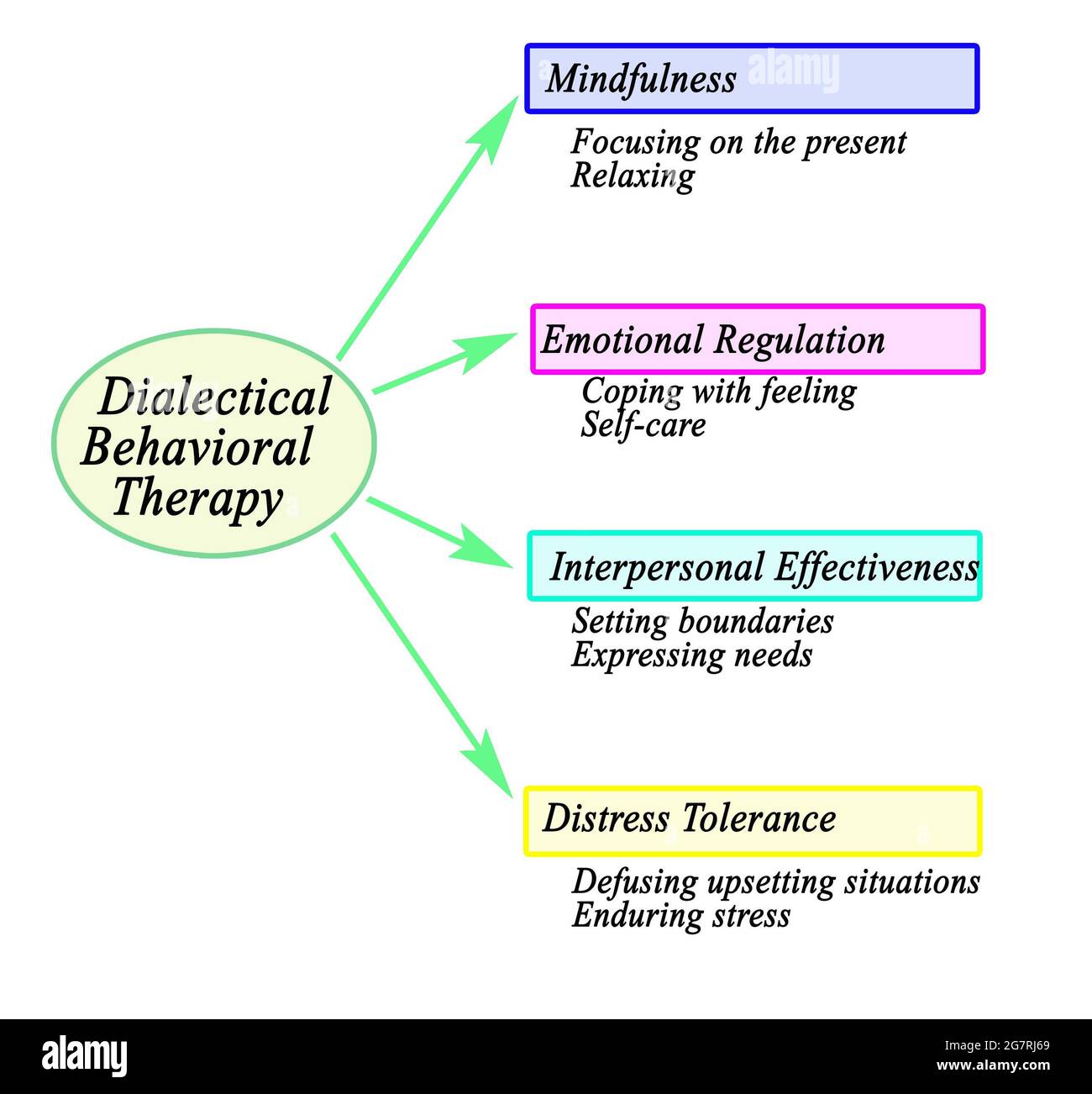
Dialectical Behavior Therapy (DBT) is a comprehensive, evidence-based treatment for borderline personality disorder (BPD) 1 . Although DBT has many similarities with cognitive behavioral therapy (CBT), it also has distinct features that set it apart from most CBT approaches2 . In this blog, we will explore what DBT is, how it works, and what makes it unique.
What is DBT?
DBT is a type of therapy that was developed by psychologist Marsha Linehan in the late 1980s. It was originally designed to treat individuals with BPD, but it has since been adapted to treat a range of mental health conditions, including depression, anxiety, and substance use disorders
How does DBT work?
DBT is a skills-based therapy that focuses on helping individuals learn new ways of coping with difficult emotions and situations. It is based on the idea that individuals with BPD have difficulty regulating their emotions and often experience intense and overwhelming emotions that can lead to impulsive behaviors1
.DBT is typically delivered in a group setting, although individual therapy may also be included. The Treatment is separated into four modules : care , trouble resilience , feeling guideline, and relational viability . Each module focuses on a different set of skills that can help individuals manage their emotions and improve their relationships with others.
What makes DBT unique?
One aspect that sets DBT apart from other therapies is its focus on dialectics. Dialectics is the idea that two opposing truths can both be true at the same time. In DBT, this means helping clients hold two opposing truths in their mind at once3 . For example, a client may feel both angry and sad about a situation, and DBT would help them learn to hold both of these emotions at the same time.
Another unique aspect of DBT is its use of validation. Validation is the process of acknowledging and accepting a person's thoughts and feelings, even if you don't agree with them. In DBT, validation is used to help clients feel heard and understood, which can help them regulate their emotions more effectively.
What are the key principles of Dialectical Behavior Therapy
DBT is based on the idea that all things are interconnected, and it focuses on helping clients hold two opposing truths in their mind at once2 . DBT also emphasizes the importance of validation, which is the process of acknowledging and accepting person's thoughts and feelings, even if you do not agree with them3 . DBT consists of four modules: mindfulness, distress tolerance, emotion regulation, and interpersonal effectiveness, each of which focuses on a different set of skills that can help individuals manage their emotions and improve their relationships with others4 .
What are the key components of DBT
The key components of Dialectical Behavior Therapy (DBT) include four behavioral skill modules, with two acceptance-oriented skills (mindfulness and distress tolerance) and two change-oriented skills (emotion regulation and interpersonal effectiveness)1 .
Group sessions are held weekly for 2.5 hours and include these four modules2 .
DBT likewise includes one-on-one meetings with a specialist to figure out how to apply DBT abilities to explicit difficulties and circumstances in your own life3 .
. The first 3–4 sessions with a DBT therapist are used to help potential clients identify their therapy goals, to learn about DBT, and to clearly define DBT therapist and client roles in obtaining treatment goals4 .
. DBT specialists utilize rationalization hypothesis to assist themselves and clients with getting "unstuck" from thinking in polarities and to adjust alternate extremes to accomplish new perspectives4 .
Another aspect unique to DBT is its focus on helping clients hold two opposing truths (a dialectic) in their mind at once5
Conclusion
DBT is skills-based therapy that can help individuals with a range of mental health conditions learn new ways of coping with difficult emotions and situations. It is based on the idea that individuals with BPD has difficulty regulated their emotions and often experiences intense and overwhelming emotions that can lead to impulsive behaviors. DBT is unique in its focus on dialectics and validation, which can help clients learn to hold two opposing truths in their mind at once and feel heard and understood.
.png)
No comments:
Post a Comment